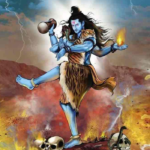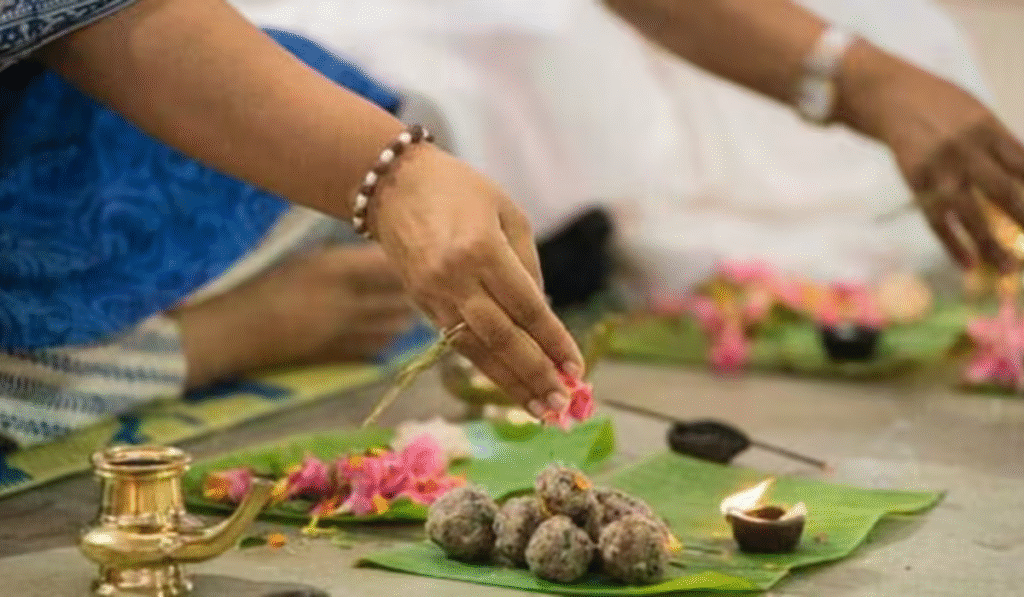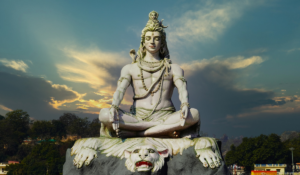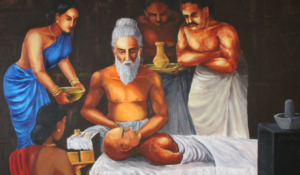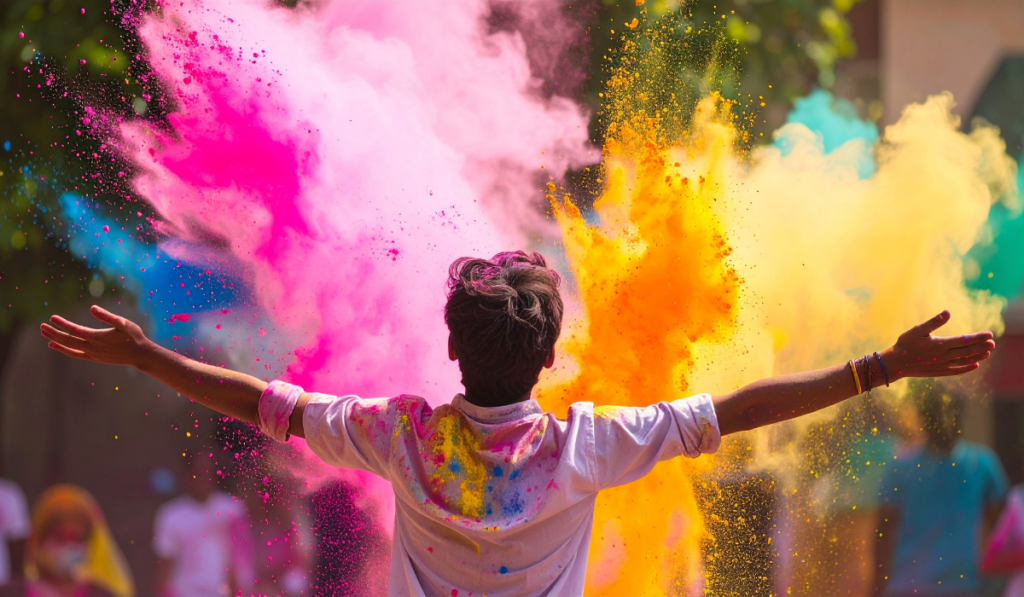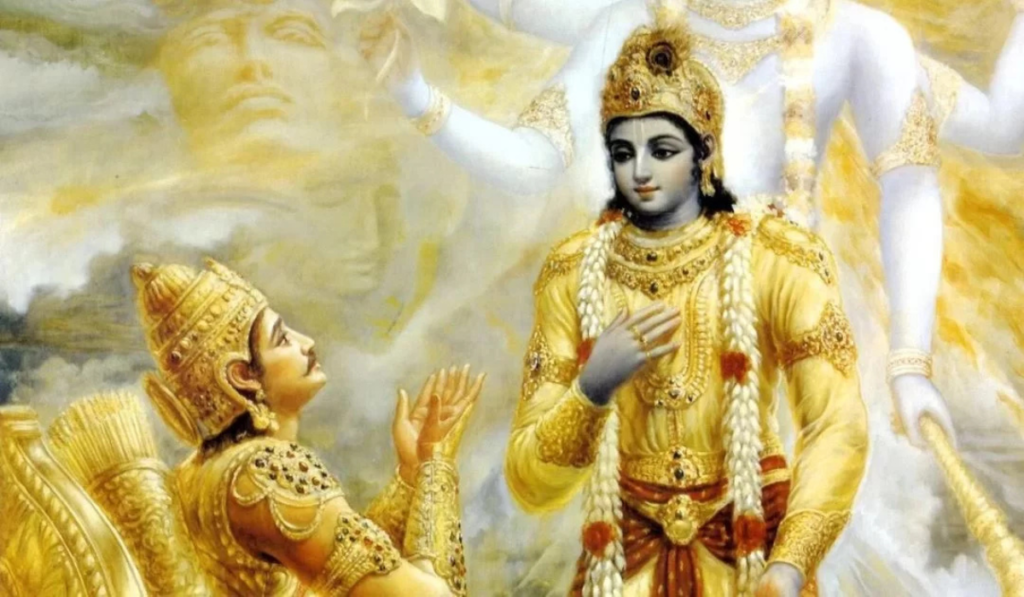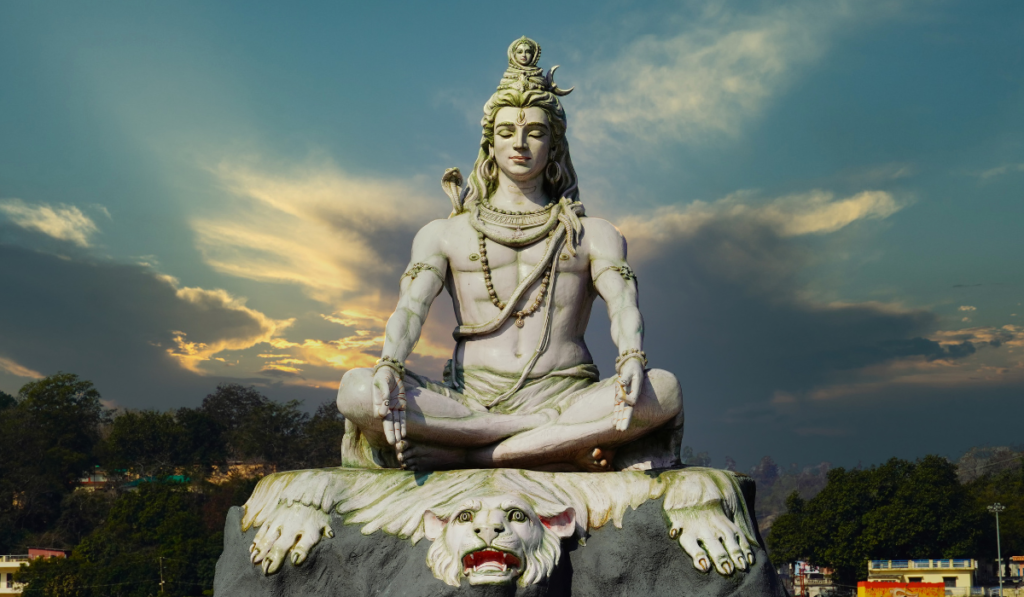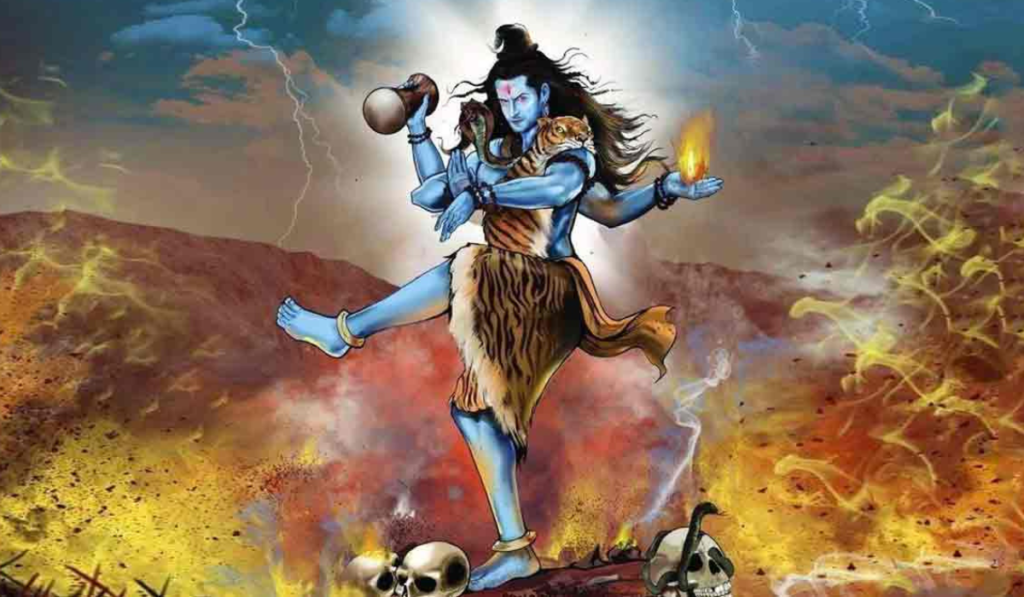Every family has stories. Tales of grandparents who worked hard, great-grandparents who lived in a different world altogether. They shaped who we are today, even if we never met them. Pitru Paksha, also called the fortnight of ancestors, is about remembering them. It is not just a ritual performed out of fear or obligation.
It is a tradition rooted in gratitude and love. It is a reminder to be grateful and honor their contribution in our lives because they are the reason where we are. Pitru Paksha reminds us of our roots and where we came from.
Apart from being such an important ritual of Sanatan Dharma, many new generations don’t know what it is and why it holds such importance even in a modern lifestyle. Well then, let us explore this ancient custom through a lens that feels relevant today.
Pitru Paksha Date and Timings in 2025
Wondering when Pitru Paksha will be observed in 2025? Here are the key dates and timings to help you plan your rituals:
- Start Date: Sunday, September 7, 2025 (Bhadrapada Shukla Purnima)
- End Date: Sunday, September 21, 2025 (Sarva Pitru Amavasya)
- Duration: 15 days
- Kutup Muhurat: September 21, 2025 – 11:47 AM – 12:37 PM
- Tarpan Time: 12:00 PM – 12:50 PM
- Dwadasi End Moment: 1:39 PM – 4:09 PM
Why is Pitru Paksha?
In English, Pitru Paksha literally means the fortnight of the forefathers. It is a 16-day lunar period that falls in the Krishna Paksha (waning phase of the moon) during the month of Bhadrapada as per the Hindu calendar. And like every year, it is observed with devotion by millions of families.
During these days, people perform Shradh, a ritual of offering food, water, and prayers to their ancestors. The belief is that our forefathers bless us from the stars when we remember them with sincerity. And mind it, this is not about superstition. It is about acknowledging the invisible thread that connects the past, the present, and the future.
Why Do We Perform Shradh?
Shradh comes from the Sanskrit word Shraddha, which means faith. According to ancient scriptures like the Garuda Purana and Manusmriti, every individual carries three debts: to the gods, to the gurus, and to the ancestors. The debt to our ancestors, called Pitru Rin, is repaid through these offerings.
To be more precise, the shradh rites are performed to guide our ancestors’ souls towards peace and salvation in the afterlife. It is also believed that the food we offer to brahmins, animals, or crows reaches the souls and aids them in their spiritual journey in the afterlife.
But let us look at this from another angle. When you pause and think about your life, who do you owe it to? Your parents? Yes. Their parents? Absolutely. Every generation before us contributed to the life we have today. Shradh is a symbolic way to say thank you.
The Rituals and Meaning Behind Pitru Paksha
The most well-known ritual is Pinda Daan, where rice balls are offered to ancestors. This is followed by Tarpan, where water mixed with sesame seeds and barley is offered. Food is also served to Brahmins, cows, birds, and even dogs. Why animals? Because they represent nature’s balance and life’s interconnectedness.
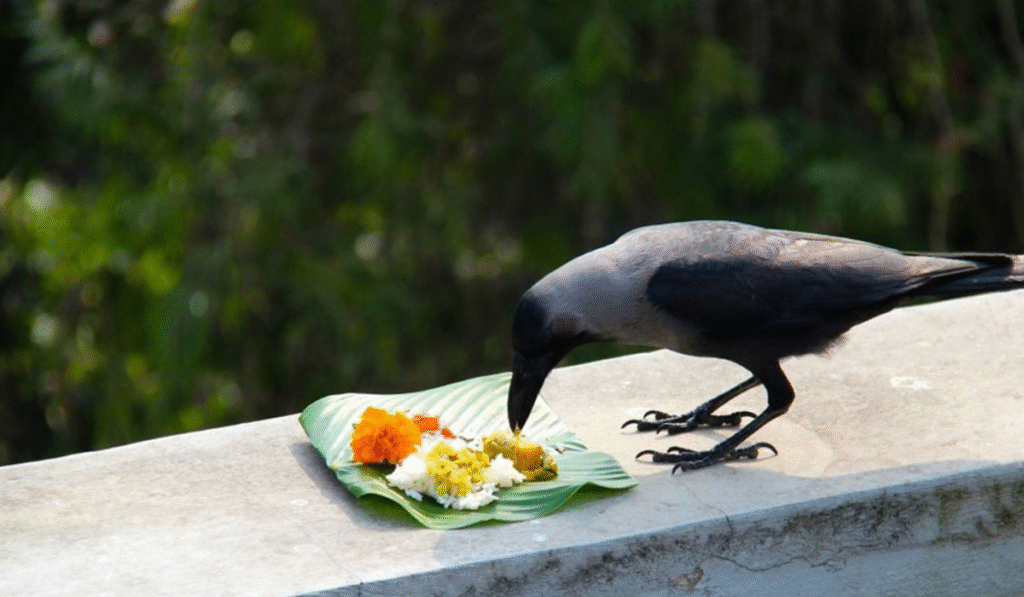
Doing charity is another big part of this observance. Donating food, clothes, or essentials is encouraged. At its heart, these acts teach humility and compassion, and values that stay for eternity.
Things to Avoid During Pitru Paksha 2025
During the Pitru Paksha time of 16 days, there are certain things you must avoid:
- Starting new ventures or big celebrations.
- Eating non-vegetarian food or indulging in alcohol.
- Wearing flashy clothes or engaging in unnecessary conflicts.
No, this is not about superstitions. It is about slowing down in life. It is a time when we must realize that life is worth more than juggling with worldly problems. These activities are not for limiting someone. It is to realize how grateful we are to spend time with loved ones and appreciate what we have. Because our ancestors understood that in the end, only love and bonds can pass through to the afterlife, not money.
Does Pitru Paksha Still Matter Today?
Does a ritual that began thousands of years ago really hold meaning in 2025? Yes, Pitru Paksha is not about fear. It is about connection. It is a chance to pause in a world that rarely stops, to look back at the roots that gave us strength.
Even if you are someone who does not follow every step of the ritual, the idea of gratitude never goes out of style. In fact, in an age where stress and anxiety dominate lives, taking time to reflect and express thanks can feel grounding. It is just like mindfulness with cultural soul.
If You Cannot Perform Full Rituals, What Can You Do?
Performing shradh according to the usual rituals is considered important. These rituals and every stage of it resemble an important meaning and deep spiritual significance. However, with a busy life between job and home, it gets difficult to align accordingly.
A renowned spiritual leader, Shri Premanand ji Maharaj, said that what matters most is the intention of gratitude. So, here are a few things you can do if you are unable to perform whole ritual:
- Offer food and water to Brahmins or donate to a charitable cause.
- Feed animals or birds, as they are also considered part of creation.
- Light a diya at home and remember your ancestors with devotion.
- Many temples now offer online Shradh services for those living far away, which can help maintain the integrity of the rituals.
These are not replacements but ways to ensure that remembrance and respect continue even in challenging situations.
What Precautions To Take While Doing Shradh?
Certain guidelines help maintain the sanctity of Shradh. Observing these ensures that the ritual is performed with the right spirit and discipline:
Purity of Mind and Body
Begin the day with a bath and wear clean, simple clothes. Purity is essential for the offering to be accepted.
Right Intentions
Perform the ritual with faith and devotion, not as a mere formality. The sincerity of your heart is as important as the offerings themselves.
Offering Simple, Fresh Food
Prepare vegetarian food with utmost cleanliness. Avoid stale or leftover dishes.
Respect for the Brahmins and Guests
Those invited for the ritual should be treated with humility and respect, as they symbolically represent the ancestors during the offering.
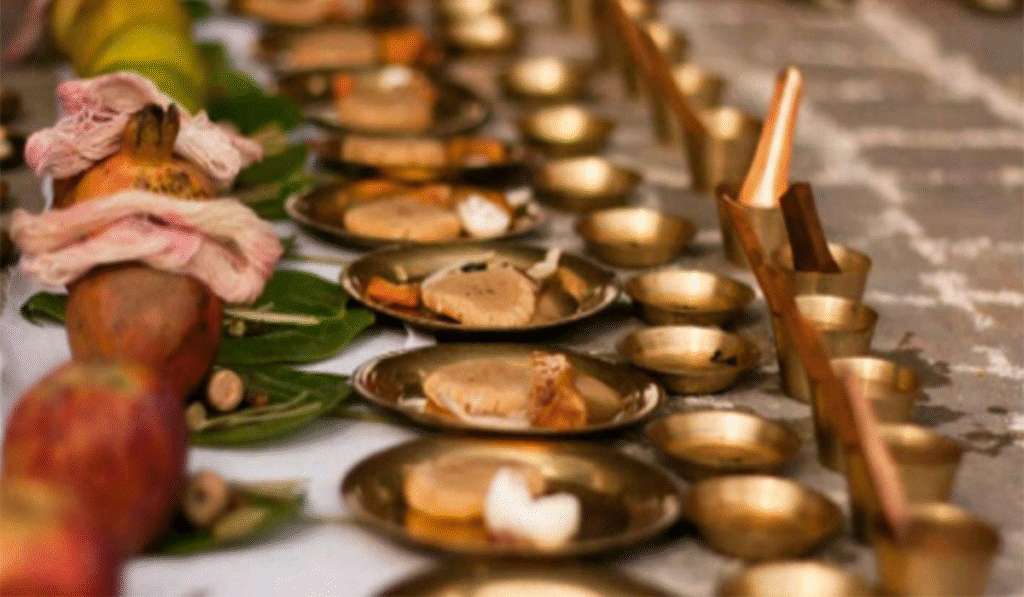
Maintain Calm and Avoid Anger
The day should be peaceful and free from unnecessary disputes. A calm mind ensures the purity of the ritual.
Do Not Mix with Festivities
Refrain from celebrations, new ventures, or indulgences on the day of Shraddha. The focus should remain on remembrance and gratitude.
Charity with Humility
Donate food, clothes, or essentials after the ritual without pride or expectation. Giving is most powerful when done selflessly.
Avoid Non-Vegetarian Food and Alcohol
These are strictly prohibited during Pitru Paksha as they disturb the sanctity of the observance.
Time Matters
Perform the ritual during the prescribed Muhurat, such as Kutup Muhurat, for maximum spiritual benefit.
Remember All Ancestors
While the Shraddha may be dedicated to a specific ancestor, prayers should include all forefathers for universal peace and blessings.
Final Words
Pitru Paksha is a tradition that binds us to our roots and reminds us of the eternal cycle of life and death. In a world that rushes forward without looking back, these sixteen days invite us to pause and reflect on the love, sacrifices, and blessings of those who came before us.
When we perform Shradh with devotion, we do more than offer food and water. We offer respect, gratitude, and prayers for peace. And what truly matters is the sincerity of the heart.
As saints say, remembering our ancestors is not just a duty, it is a way to strengthen the foundation of our own lives. By honoring the past, we invite blessings for the present and pave the way for a future rooted in values. That is the real essence of Pitru Paksha, a sacred reminder that love and gratitude never fade.
Let’s stay connected! Come say hi on Instagram or follow us on Facebook for daily inspo.

